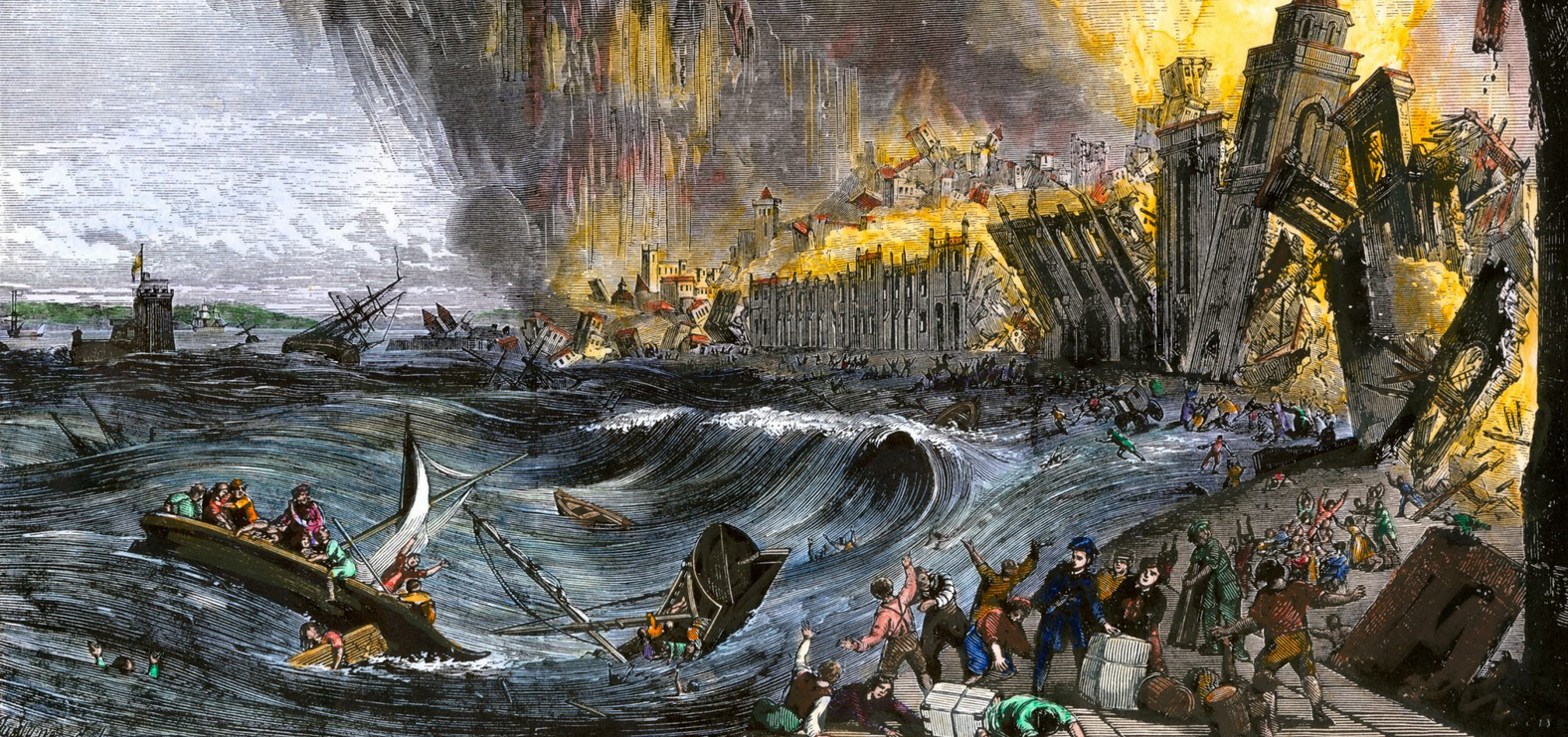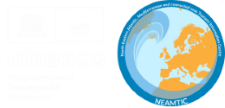JRC/DG-ECHO/UNESCO-IOC Joint Hybrid-Workshop on Local Tsunami Warning in the context of Multi-Hazard Disaster Risk Mitigation in the NEAM region - Requirements, Challenges, Opportunities. 4-5 October 2022 at EC-JRC Ispra-Italy.
The European Commission's Joint Research Centre (JRC), in collaboration with the Directorate-General for European Civil Protection and Humanitarian Aid Operations (DG ECHO) and the UNESCO-Intergovernmental Oceanographic Commission (IOC), is organizing an hybrid-workshop on 4-5 October 2022 at EC-JRC Ispra-Italy.

Earthquake, tsunami, and destructive fires in 1755, Lisbon, Portugal. Photo of 19th-century illustration by North Wind Picture Archives/Alamy Stock Photo
Objective
The Joint Research Centre (JRC) is closely involved in the work of the UNESCO-Intergovernmental Oceanographic Commission (IOC) contributing to its work in many aspects: from the generation of tsunami scenarios to the provision of operational tsunami early warning software and inexpensive sea-level devices (IDSL) globally, or initiatives towards establishing Tsunami Ready communities in the Euro-Mediterranean region. The JRC develops innovative technological solutions for disaster risk management, including newly designed sensors and alerting devices for tsunami risk. The Directorate General for European Civil Protection and Humanitarian Aid Operations (DG ECHO) has funded the test of their effectiveness and interoperability during 2018-2021, through the Tsunami Last Mile projects, as implemented first in Greece and Turkey (2018/2019) and then in Malta and Indonesia (2020/2021) through “Last Mile” projects.
One of the most recent examples of such collaboration in capacity building was the DG-ECHO / UNESCO-IOC project “Strengthening the Resilience of Coastal Communities in the North-East Atlantic and Mediterranean Region to the Impact of Tsunamis and Other Sea Level-Related Coastal Hazard (CoastWAVE)“. This initiative started in late 2021, aimed to strengthen the resilience of vulnerable coastal communities in the North-East Atlantic, Mediterranean and its connected seas (NEAM) region to tsunamis and other sea level-related hazard by adapting Global Tsunami Ready Standards and Guidelines and pilot Tsunami Ready within the framework of the ICG/NEAMTWS and providing a sustainable sea-level measurement network.
Based on the framework described above, this workshop will bring earthquake, volcano and tsunami (including meteo-tsunami) early warning experts to discuss in detail the requirements of effective local tsunami warning in the multi-hazard disaster risk mitigation context. The outcome report of the workshop is expected to assist the development of an integrated, truly multi-hazard oriented coastal community resilience policy brief for Europe.
Links
- More information on the workshop, including agenda and speakers, please visit the European Commission (EC) - Disaster Risk Management Knowledge Centre (DRMKC) featured events site.
- More information on UNESCO IOC Tsunami Programme
- More information on the Joint Research Centre and DG ECHO contribution to the work of the UNESCO-Intergovernmental Oceanographic Commission (IOC): https://webcritech.jrc.ec.europa.eu/ AND https://drmkc.jrc.ec.europa.eu/events-news/newsletter/newsletter-21
- More information on UNESCO-IOC project “Strengthening the Resilience of Coastal Communities in the North-East Atlantic and Mediterranean Region to the Impact of Tsunamis and Other Sea Level-Related Coastal Hazard (CoastWAVE)“









































